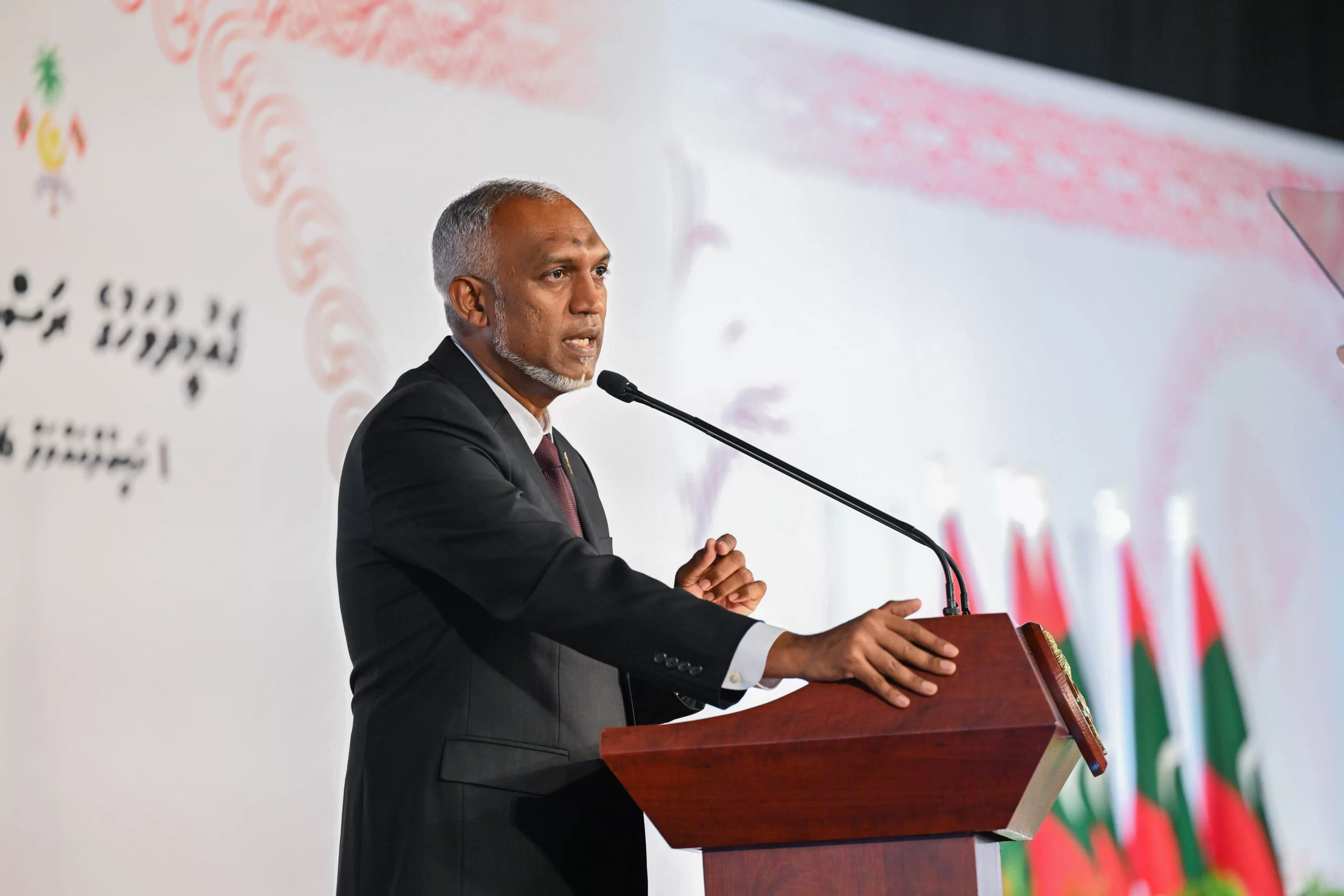MALE, Maldives — Standing before a nation celebrating its National Day, President Dr. Mohammed Muizzu delivered an expansive address that touched on everything from ancient defensive fortifications to modern economic reforms, weaving a narrative that positioned the island nation’s rich cultural heritage as the foundation for its future development.
“Our eyes see a native sky darkening from the darkness of paganism. Our ears are hearing the many painful cries of a nation crying in the shackles of slavery,” the president said, reaching back 465 years to frame the historical context of the nation’s journey. “Overcoming this unrest and darkness, a few bright stars ……”
In a speech that lasted nearly two hours, the president outlined an ambitious vision for national renewal, drawing direct connections between historical resistance to foreign occupation and contemporary challenges to sovereignty. He pointed to physical reminders of the nation’s defensive past, including gun towers and fortification walls built by ancient rulers.
“Looking back, history has always shown that there are foreign eyes watching Maldives,” he said, gesturing to the museum’s collection of Portuguese artillery pieces — silent testimonies to past conflicts. “That is evidenced by the defensive walls built by the Great King around Male’.”
The president’s emphasis on national security took on added significance given recent regional tensions. “I base my entire policy on this basis,” he declared, highlighting the absence of foreign troops on Maldivian soil and the deployment of modern surveillance technology to protect the nation’s borders.
Cultural preservation emerged as a central theme, with the president paying tribute to national intellectual figures. He particularly honored Sheikh Hussain Salahuddin, describing him as “an exemplary son of the Maldives nation” and lauded the late Mohammed Taufiq for his thorough narration of religious texts.
On economic development, the president articulated a vision linking national security to economic self-sufficiency. “Man gives his life for his soil, if it saves his soul,” he said, emphasizing the critical relationship between the Maldivian people and their marine resources. “If the Maldivians lose their power over the seas, it is the beginning of a famine.”
The speech introduced new initiatives for workforce development, focusing on creating what the president called “working generations to build children loyal to the country.”
In a significant portion of his address, the president quoted the late Ibrahim Shihab, a prominent expert on Maldivian parliamentary life: “Independent, characterized by a particular way of life, each people respects their religion the most. The language of the people. Their history. And their culture.”
Educational reform featured prominently, with the president calling on “every parent, every teacher and every citizen” to protect future generations from what he termed “the waves of corrupt thought.” This educational initiative appears to be part of a broader government effort to strengthen national identity through systematic study and documentation of Maldivian culture and history.
The speech concluded with an urgent call for national unity and immediate reform. “Let us all unite and resolve to protect and restore the nationality of this beloved country,” the president said, requesting broad citizen participation in what he framed as a crucial period of national renewal.
The address, while celebratory in nature, underscored the complex challenges facing this Indian Ocean nation as it attempts to balance traditional values with modernization, and sovereignty with international cooperation. Government officials later confirmed that specific policy initiatives mentioned in the speech would be detailed in coming weeks.










